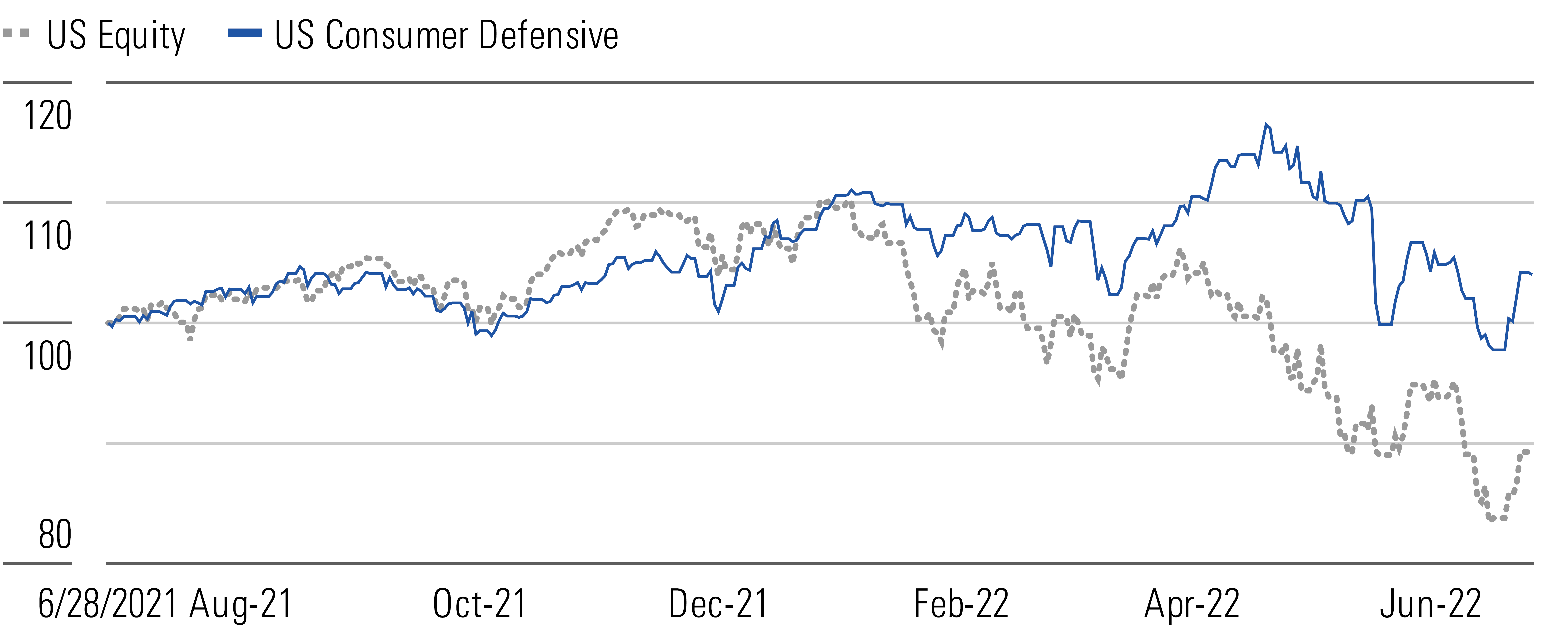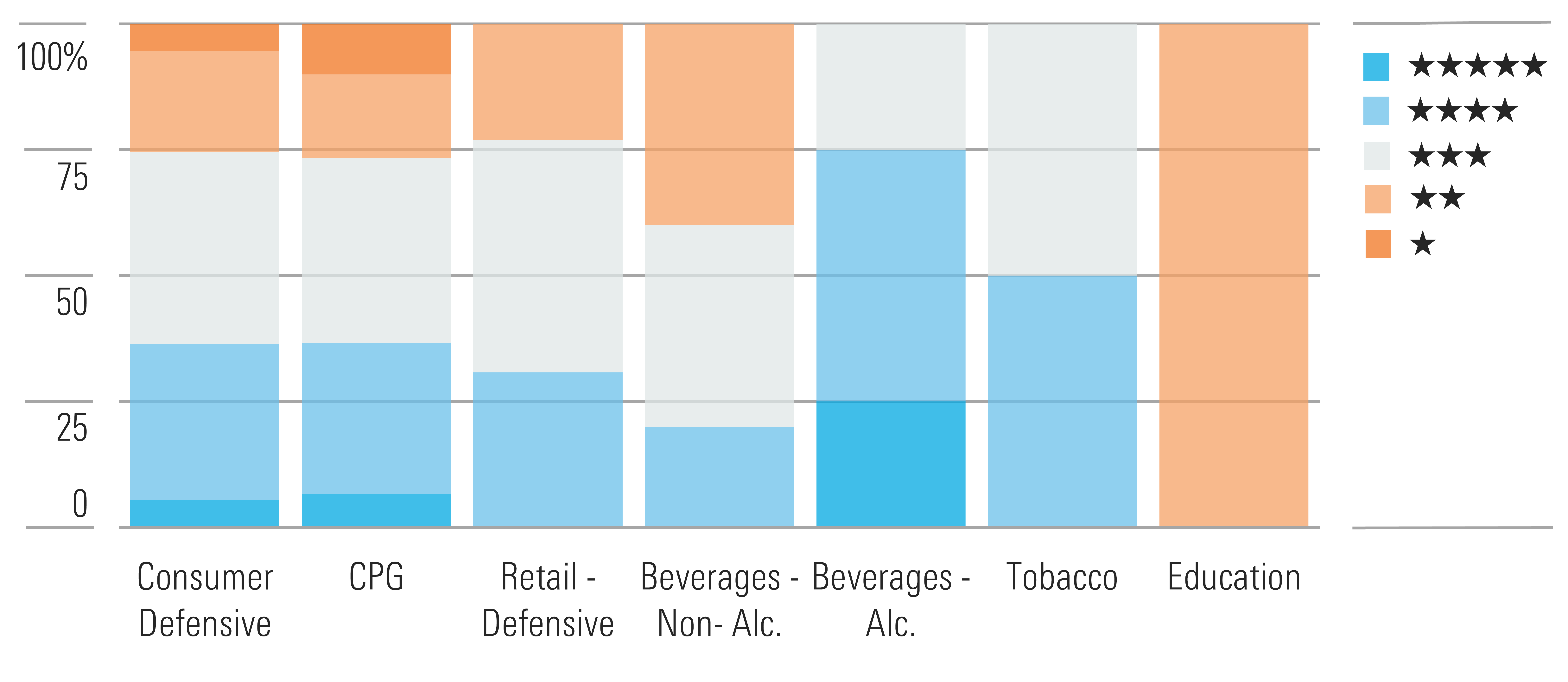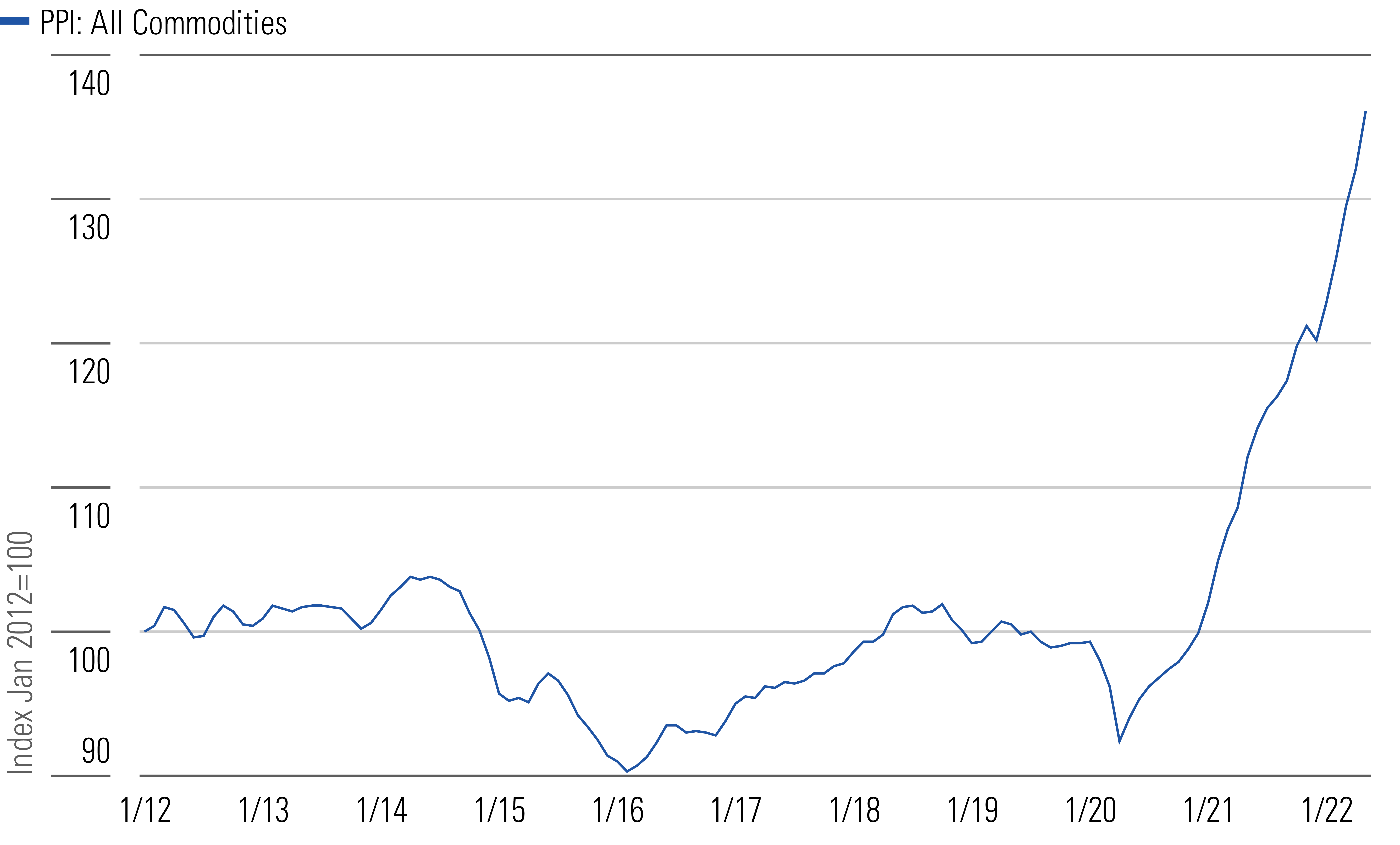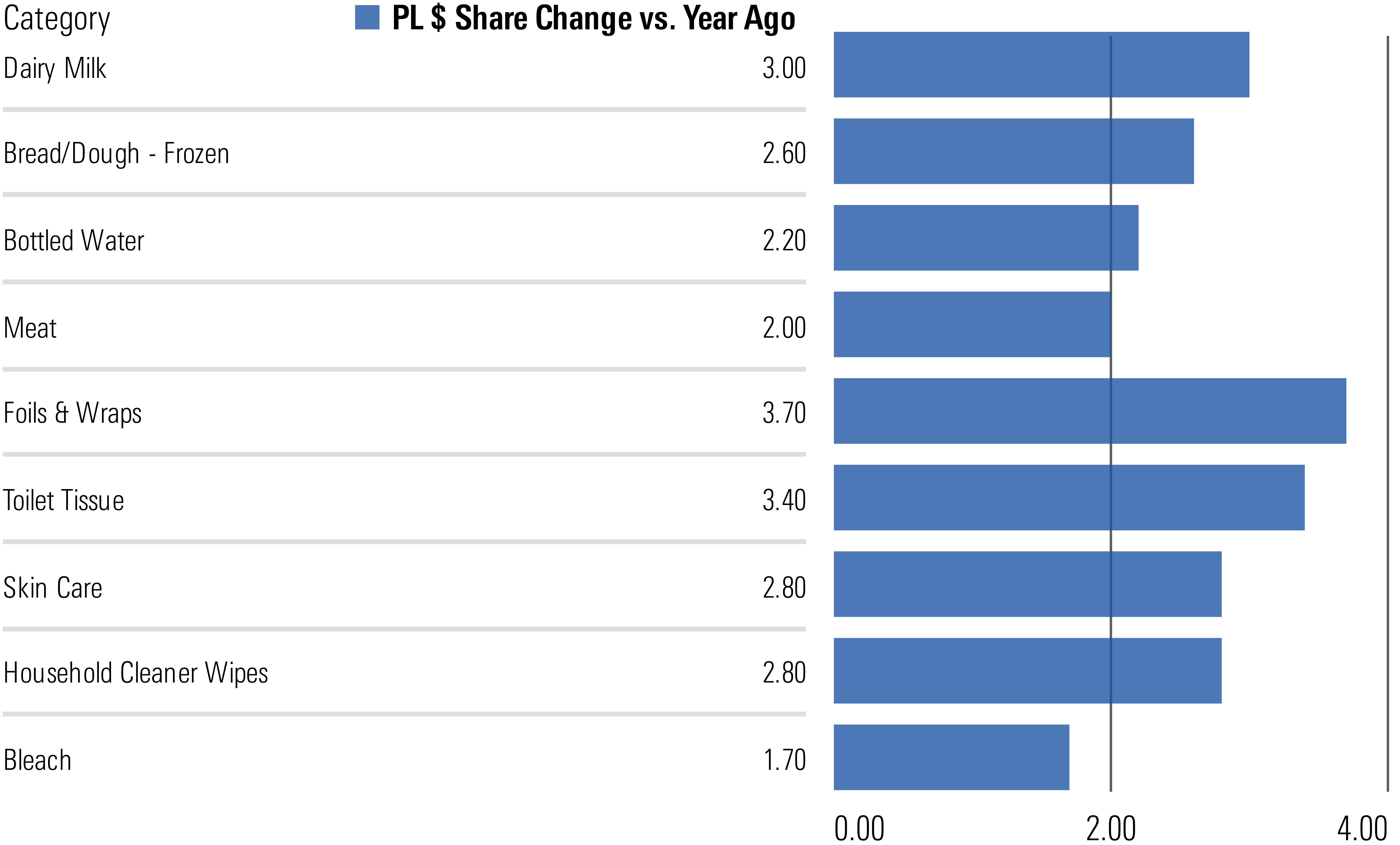Sales of Alcoholic Beverages Dry Up, Leaving Some Bargains in Consumer Defensive Stocks
With investors favoring the sector to help ride out the market storm, only 35% of consumer defensive stocks we cover are undervalued.
The consumer defensive sector again proved buoyant despite choppy market conditions in the second quarter, shedding just 4.7% through June 27 versus a 14.2% drop in the broader market.
The Market Found Favor With Consumer Defensive This Quarter
US equity and US consumer Cyclical graph

- Source: U.S. Bureau of Labor Statistics, IRI POS, IRI Client Engagement, Morningstar.
Still, this has left investors with few undervalued opportunities, as the median consumer defensive stock is fairly valued from our vantage point. This translates to only 35% of our consumer defensive coverage with 4- or 5-star ratings, with the vast majority falling in the alcoholic beverage aisle. We suspect shares have been hampered by rising inflation and its potential impact on consumer spending (particularly in the on-premises realm). However, we think this sentiment is a bit pessimistic, given the enhanced levels of brand investment firms began employing even before the pandemic.
In a Heated Space, We Think Alcoholic Beverage Names Look Undervalued
consumer defensive, cpg, retail-defensive, beverages, tobacco, and education graph

- Source: U.S. Bureau of Labor Statistics, IRI POS, IRI Client Engagement, Morningstar.
Even as inflation has come barreling back (across raw materials, transportation, packaging, and labor), we've long held that consumer product manufacturers have a number of tools at their disposal to buffer profits, including raising prices, pursuing cost-saving initiatives (which could encompass the adoption of increased automation and thus a lower dependence on labor), and employing revenue management opportunities. However, since inflation has shown little signs of tapering and some firms have already raised prices multiple times, we think continued brand spending will be needed to circumvent a hit to volumes.
Commodity Prices Have Skyrocketed After Years of Dormancy
all commodities graph

- Source: U.S. Bureau of Labor Statistics, IRI POS, IRI Client Engagement, Morningstar.
And despite increased prices at the shelf, shoppers have been resilient so far, with rising wages and fairly high savings levels through the pandemic helping to offset cost increases, leaving consumer spending largely unscathed. (In real terms, personal consumption expenditures rose 3% in April 2022 from the same period a year ago.)
However, sharply higher fuel prices in the wake of Russia's February invasion of Ukraine have exacerbated pocketbook pressures. This has led to more consumers trading down to private-label products in a handful of food, household, and personal-care categories. We don’t think these pressures are poised to subside in the near term, so we maintain that its critical for firms to showcase the value-added nature of their products or risk turning off consumers and bleeding share.
Consumers Are Shifting to Lower-Priced Private-Label Fare
PL $ Share Change vs. Year Age

- Source: U.S. Bureau of Labor Statistics, IRI POS, IRI Client Engagement, Morningstar.
Top Picks
Beyond Meat BYND Star Rating: ★★★★★ Economic Moat Rating: None Fair Value Estimate: $72 Fair Value Uncertainty: High
Beyond Meat shares are attractive, trading at a 65% discount to our $72 fair value estimate. We think investor fears about slowing U.S. retail demand for plant-based meat are unwarranted, as the slowdown appears to be the result of the pandemic-driven surge in 2020. In our view, growth should reaccelerate in 2022 with the expanded launch of McDonald's McPlant in multiple geographic regions and the co-creation of products with Yum Brands for various fast-food chain restaurants across the globe. As primary growth drivers, these deals should collectively result in over $200 million in incremental annual revenue by 2025.
Boston Beer SAM Star Rating: ★★★★★ Economic Moat Rating: Narrow Fair Value Estimate: $740 Fair Value Uncertainty: Medium
Shares of narrow-moat Boston Beer, a leader in U.S. high-end malt beverage and adjacent categories, trade about 60% below our intrinsic valuation. We posit that the firm has shown a proclivity to augment its portfolio in alignment with the latest growth vectors and capture a disproportionate share of the economic rents generated from this growth by being one of the first movers. While seltzer trends have slowed, a shift in secular consumption, like the desire for low-sugar products and varied flavors, should continue to support Boston Beer’s sales, evidenced by the recent launch of the hard seltzer Truly Margarita.
Hain Celestial Group HAIN Star Rating: ★★★★★ Economic Moat Rating: None Fair Value Estimate: $39 Fair Value Uncertainty: Medium
Shares of Hain trade at a 40% discount to our $39 per share fair value estimate, partially the byproduct of recent weakness in its European arm. We view these issues as largely transitory, and with a portfolio of organic and natural fare aligned with consumer preferences, Hain is well positioned for the long term. Even though it historically underinvested in its brands, Hain has changed course under a new leadership team. The effectiveness of these efforts has resulted in Hain boasting modest share gains (versus losses prior), and we think its top-line growth will remain on an upward trajectory as a result.

/s3.amazonaws.com/arc-authors/morningstar/c612f59b-89e0-422a-8f71-3eb1300d1a2c.jpg)
/cloudfront-us-east-1.images.arcpublishing.com/morningstar/CFV2L6HSW5DHTFGCNEH2GCH42U.jpg)
/cloudfront-us-east-1.images.arcpublishing.com/morningstar/7AHOQA64TFEQDMYMIMM6VUHYLY.png)
/cloudfront-us-east-1.images.arcpublishing.com/morningstar/JA7LQ2INFNFTZFBJLSDUZGIPJQ.png)
:quality(80)/s3.amazonaws.com/arc-authors/morningstar/c612f59b-89e0-422a-8f71-3eb1300d1a2c.jpg)